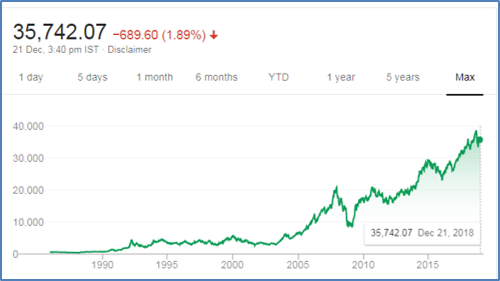Berkshire Hathaway Shareholder letter – 1983-85
Key Takeaways from the letters (in no particular order)
Learning 1
Allocation of capital is the key – Allocation of capital is the key factor to judge a business management or a fund manager. It is one of the most crucial factors which decide the fate of the business or fund. We as investors need to keep an eye on the capital allocation decisions of management. We often see management retaining large sums of the business earnings and reinvesting it in lower return of investment projects, unrelated businesses, just so that management can expand their empire or at times we see companies having a high dividend payout ratio when they actually need to deploy capital in their business. Both these circumstances are alarming. Market in general rewards management which has a history of good capital allocation decisions.
This is true for businesses and individuals alike as capital is not free, every decision we as individuals take to save, spend or invest capital matters.
Learning 2
Become a learning machine – To be successful one need to keep learning and updating oneself. To become a learning machine one has to voraciously read, think and aim to become little wiser every day. This concept been beautifully captured in an article on the Buffet formula in the widely read and followed blog “Farnam Street”. I strongly suggest that you read the full article here.
The biggest difficulty in life is not learning new things; it is to unlearn the old. Keynes articulated the problem crisply when he said: “The difficulty lies not in the new ideas but in escaping from the old ones.”
Learning 3
Invest in management who eat their own cooking – Buffet in his 1983 annual letter to shareholders lists down the major business principles which he follows and one of the most important one is that he has an ownership orientation instead of thinking like a manager. He and other directors are all major shareholders of Berkshire Hathaway. This is one of the key takeaways for us as investors – look for companies with high Promoter holdings or mutual funds where the fund managers have their own funds invested.
Learning 4
Study your failures rather than your success – Buffet emphasizes that both in life and other aspects of life studying and learning from your mistakes is of great importance. He embodies it by giving a full detailed account of his reason of shutting down the textile business and the loss in earnings caused by the delay in taking this decision.
Learning from our mistakes has one added advantage we tend to not repeat them again in future (hopefully). As Charlie Munger says “All I want to know is where I’m going to die so I’ll never go there.”
Learn more from Warren Buffet through previous parts of our series:

